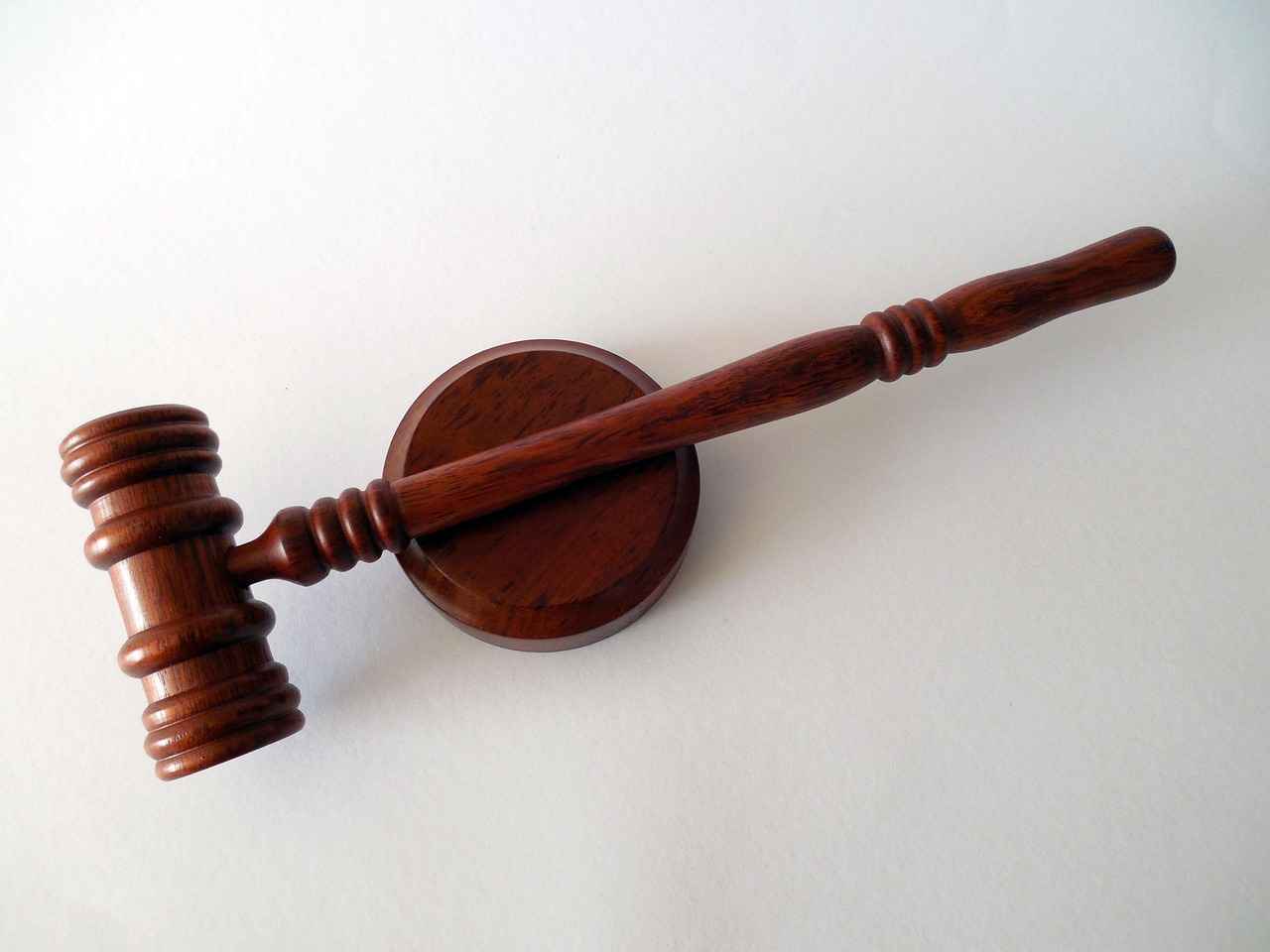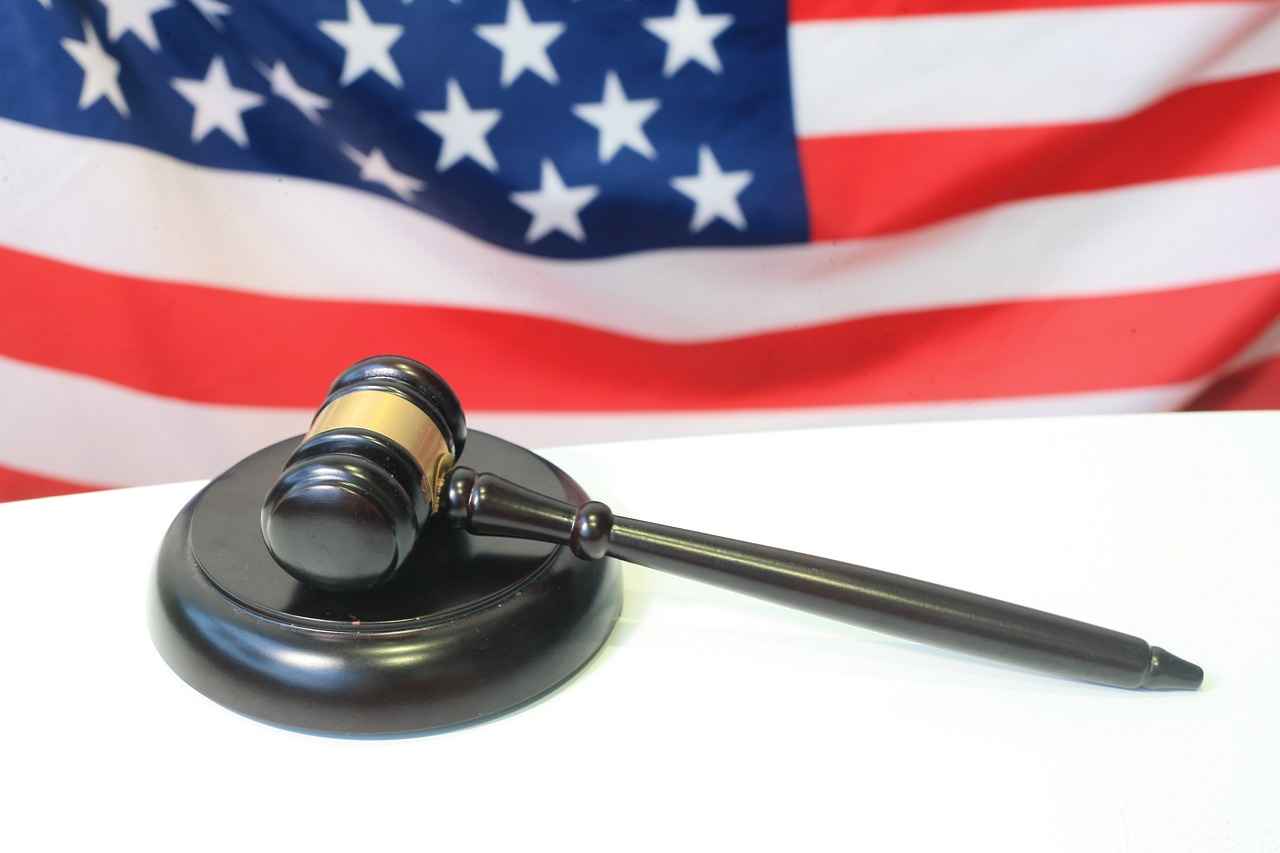This article explores effective strategies for locating qualified legal professionals in Albuquerque, New Mexico, covering various case types and providing practical tips for ensuring a trustworthy selection.
Personal injury law covers a range of incidents where individuals sustain harm due to another party’s negligence. In Albuquerque, finding a competent personal injury attorney is essential for navigating the complexities of these cases. Look for lawyers who specialize in personal injury law and have a proven track record of securing favorable settlements for their clients. Consider utilizing online legal directories, such as Avvo or FindLaw, to read reviews and compare qualifications. Additionally, ensure that the attorney you choose offers a free consultation, allowing you to discuss your case without financial commitment.
Medical malpractice involves negligence by healthcare providers that leads to patient injury. To find a specialized attorney in Albuquerque, seek recommendations from trusted medical professionals or friends who have had similar experiences. Verify the attorney’s credentials, including their experience with medical malpractice cases, and check for any disciplinary actions through the New Mexico State Bar Association. A knowledgeable attorney will understand the intricacies of medical records and expert testimony, which are crucial for a successful claim.
Breach of contract cases arise when one party fails to fulfill their obligations under a contract. In Albuquerque, it’s important to find an attorney experienced in contract law who can help protect your interests. Look for lawyers who have successfully handled similar cases and are familiar with both state and federal contract laws. Consider scheduling initial consultations to discuss your specific situation and gauge the attorney’s approach to resolving such disputes.
Property disputes can involve various issues, from boundary disagreements to landlord-tenant conflicts. Engaging a knowledgeable attorney in real estate law in Albuquerque can facilitate effective resolution. Seek attorneys who are well-versed in local property laws and have a good reputation in the community. Online platforms like Zillow and Realtor.com can provide insights into local real estate attorneys, while reviews on Google and Yelp can help you assess their reputation.
Landlord-tenant disputes often arise from issues such as eviction, rent increases, and property maintenance responsibilities. A skilled attorney can provide guidance on your rights and responsibilities under New Mexico law. When searching for a lawyer, look for those who specialize in housing law and have experience with local regulations. Legal aid organizations can also offer resources and referrals for individuals who may not have the means to hire a private attorney.
Defamation, which includes both libel and slander, can seriously impact a person’s reputation. Finding an attorney with expertise in defamation cases is crucial for protecting your rights. In Albuquerque, consider lawyers who have successfully represented clients in similar cases and can demonstrate their understanding of media law and free speech issues. Check their history of verdicts and settlements to gauge their effectiveness in handling defamation claims.
Employment disputes can involve wrongful termination, discrimination, and wage issues. An experienced employment lawyer can help you navigate labor laws and advocate for your rights in the workplace. When searching for an attorney in Albuquerque, prioritize those with a strong background in employment law and positive client testimonials. Organizations like the National Employment Lawyers Association can provide referrals to qualified attorneys.
Product liability cases occur when consumers are harmed by defective products. Identifying a lawyer who specializes in this area can help you hold manufacturers accountable for their negligence. Look for attorneys in Albuquerque who have a history of successful product liability claims and are familiar with relevant safety regulations. Online legal resources and local bar associations can help you find qualified attorneys in this specialized field.
Wrongful death claims seek compensation for families who have lost loved ones due to negligence or wrongful acts. Finding a compassionate and experienced attorney in Albuquerque is vital for pursuing justice. Look for lawyers who have handled wrongful death cases and can demonstrate their commitment to supporting grieving families. Seek referrals from trusted sources or organizations that specialize in wrongful death advocacy.
Class action lawsuits allow groups of individuals to collectively seek justice against a common defendant. Understanding how to find a class action attorney can enhance your chances of success. In Albuquerque, look for lawyers who have experience with class action suits and a strong track record of achieving favorable outcomes. Research their previous cases and client feedback to ensure they are well-equipped to handle your situation.
Assault and battery charges can lead to severe legal consequences. A knowledgeable criminal defense attorney is essential for navigating the complexities of criminal law and protecting your rights. When searching for a lawyer in Albuquerque, prioritize those with experience in criminal defense, particularly in cases similar to yours. Check their success rates and client reviews to gauge their effectiveness.
Drug offenses can vary significantly in severity and complexity. Securing a defense attorney experienced in drug law can significantly impact the outcome of your case. In Albuquerque, seek attorneys who specialize in drug-related offenses and have a comprehensive understanding of local laws. Look for those with proven success in negotiating plea deals or winning trials in drug cases.
Family law encompasses various issues, including divorce, child custody, and support. Choosing the right family law attorney in Albuquerque is critical for navigating these emotionally charged situations effectively. Look for attorneys who are empathetic and have a strong track record in family law cases. Consider reaching out to local family law associations for recommendations and resources.

Understanding Personal Injury Cases
Personal injury law is a vital area of legal practice that deals with incidents where individuals suffer harm due to the negligence or wrongful actions of others. This can include a wide range of scenarios, such as car accidents, slip and fall incidents, workplace injuries, and more. The primary objective of personal injury law is to provide victims with the opportunity to seek fair compensation for their injuries, medical expenses, lost wages, and pain and suffering.
When navigating the complexities of personal injury claims, it is crucial to understand the steps involved in finding a competent personal injury attorney. Here are some effective strategies:
- Research Credentials: Look for attorneys who specialize in personal injury law and have a proven track record of successful cases. Check their education, years of experience, and any relevant certifications.
- Read Reviews and Testimonials: Online reviews can provide insight into an attorney’s reputation and client satisfaction. Websites like Avvo and Yelp can be helpful in this regard.
- Ask for Referrals: Personal recommendations from friends, family, or colleagues can lead you to trustworthy attorneys who have a solid reputation in your community.
- Initial Consultations: Many personal injury attorneys offer free consultations. Use this opportunity to discuss your case, gauge their expertise, and determine if you feel comfortable working with them.
- Evaluate Communication Skills: A good attorney should be able to explain legal concepts in a way that is easy to understand. Effective communication is key to a successful attorney-client relationship.
- Consider Their Approach: Understand how the attorney plans to handle your case. Do they have a strategy for negotiating with insurance companies? Are they prepared to take your case to trial if necessary?
It’s essential to be aware of potential red flags when selecting a personal injury attorney:
- Lack of Experience: Avoid attorneys who do not specialize in personal injury law or have minimal experience in handling similar cases.
- High Pressure Tactics: Be cautious of attorneys who pressure you into signing contracts or making quick decisions without providing adequate information.
- No Clear Fee Structure: Ensure that the attorney provides a transparent fee structure. Most personal injury attorneys work on a contingency fee basis, meaning they only get paid if you win your case.
In conclusion, finding a competent personal injury attorney is crucial for securing the compensation you deserve. By following these strategies and being aware of red flags, you can make an informed decision and increase your chances of a successful outcome in your personal injury case.

Navigating Medical Malpractice Claims
Medical malpractice is a serious issue that arises when healthcare professionals fail to provide the standard of care expected in their field, resulting in harm to patients. This can include a range of situations such as surgical errors, misdiagnosis, or improper treatment. Understanding the complexities of medical malpractice claims is essential for anyone who has suffered due to a healthcare provider’s negligence.
To successfully navigate a medical malpractice claim, it is crucial to find a specialized attorney who has extensive experience in this area of law. Here are some key considerations to keep in mind:
- Experience and Specialization: Look for attorneys who specialize in medical malpractice. Their expertise will be invaluable in understanding the nuances of your case. Check their track record of successful claims and settlements.
- Credentials and Reputation: Verify the attorney’s credentials, including their education, licenses, and any professional associations they belong to, such as the American Association for Justice. Additionally, online reviews and testimonials can provide insight into their reputation.
- Initial Consultation: Most reputable attorneys offer a free initial consultation. Use this opportunity to discuss your case, ask questions, and gauge their approach. Pay attention to how well they communicate and whether they seem genuinely interested in your situation.
- Contingency Fees: Many medical malpractice attorneys work on a contingency fee basis, meaning they only get paid if you win your case. Ensure you understand the fee structure and any additional costs that may arise during the legal process.
- Communication Skills: Effective communication is vital in any legal case. Choose an attorney who explains complex legal terms in a way that you can understand and keeps you updated on your case’s progress.
When considering a medical malpractice claim, it is also important to be aware of the statute of limitations in your state, as this dictates the time frame in which you can file a lawsuit. Each state has different laws regarding how long you have to bring a claim, so consult with your attorney to ensure you do not miss any deadlines.
Additionally, gather all relevant documentation related to your medical treatment, including medical records, bills, and any correspondence with healthcare providers. This information will be crucial for your attorney to build a strong case on your behalf.
Finally, be prepared for a potentially lengthy legal process. Medical malpractice cases can be complex and may require extensive investigation and expert testimony. Having a dedicated and knowledgeable attorney by your side can make a significant difference in navigating these challenges and achieving a favorable outcome.
In summary, navigating medical malpractice claims requires careful consideration and the right legal representation. By focusing on finding a qualified attorney with the right expertise, you can enhance your chances of receiving the compensation you deserve for the harm suffered due to negligence in the healthcare system.

Addressing Breach of Contract Issues
Breach of contract cases arise when one party fails to fulfill their obligations as stipulated in a legally binding agreement. These situations can lead to significant financial losses and disputes that may require legal intervention. Understanding the nuances of contract law is crucial for both individuals and businesses alike. In this context, finding a lawyer experienced in contract law can help protect your interests and navigate complex legal frameworks effectively.
When searching for a qualified attorney to handle breach of contract cases, consider the following strategies:
- Specialization in Contract Law: Look for attorneys who specialize in contract law. Their expertise can make a substantial difference in the outcome of your case. Specialized lawyers are more familiar with the intricacies of contracts and can provide tailored advice.
- Experience with Similar Cases: Seek lawyers who have a proven track record in handling breach of contract cases similar to yours. Ask about their past cases, outcomes, and strategies employed. This experience can offer valuable insights into how they might approach your situation.
- Consult Online Legal Directories: Utilize online platforms such as Avvo or FindLaw to search for attorneys in your area. These directories provide client reviews, ratings, and detailed profiles, making it easier to assess potential candidates.
- Check Credentials: Verify the lawyer’s credentials, including their education, bar admissions, and any additional certifications related to contract law. A qualified attorney should have a solid educational background and ongoing professional development.
- Initial Consultation: Schedule an initial consultation to discuss your case. Many attorneys offer free consultations, which can help you gauge their expertise and approach. Prepare questions regarding their experience, fees, and potential strategies for your case.
- Evaluate Communication Skills: Effective communication is vital in legal matters. Ensure that the attorney you choose explains complex legal terms in a way that you understand and is responsive to your inquiries.
- Avoid Red Flags: Be wary of attorneys who make unrealistic promises or guarantees regarding the outcome of your case. Legal matters can be unpredictable, and a reputable attorney should provide a realistic assessment based on the specifics of your situation.
In addition to these strategies, it’s essential to understand the potential outcomes of a breach of contract case. Remedies may include:
| Type of Remedy | Description |
|---|---|
| Damages | Monetary compensation for losses incurred due to the breach. |
| Specific Performance | A court order requiring the breaching party to fulfill their contractual obligations. |
| Rescission | Cancellation of the contract, releasing both parties from their obligations. |
Each case is unique, and the appropriate remedy will depend on the specifics of the contract and the nature of the breach. Therefore, having a knowledgeable attorney by your side can significantly influence the outcome and ensure that your rights are protected.
In summary, addressing breach of contract issues requires careful consideration and the right legal representation. By following the outlined strategies and being aware of potential pitfalls, you can find a qualified attorney who will advocate for your interests and help navigate the complexities of contract law.

Resolving Property Disputes
Property disputes can arise in various forms, often leading to significant stress and financial implications for those involved. These disputes typically include boundary issues, disagreements over property use, and conflicts between landlords and tenants. Understanding how to navigate these legal challenges is essential for protecting your rights and interests.
When faced with a property dispute, the first step is to identify the nature of the conflict. Boundary disputes often involve disagreements over where one property ends and another begins. This can be resolved through surveys and legal documentation that clarify property lines. On the other hand, landlord-tenant disputes may arise from issues such as eviction, non-payment of rent, or property maintenance responsibilities. Engaging a knowledgeable attorney who specializes in real estate law can provide valuable guidance in these situations.
One of the most effective methods for resolving property disputes is through mediation. This process allows both parties to discuss their issues with the help of a neutral third party, aiming to reach a mutually agreeable solution without resorting to litigation. Mediation can be a cost-effective and timely alternative to court battles, which can be lengthy and expensive. However, if mediation fails, litigation may be necessary.
In the event of litigation, having a skilled attorney is crucial. They can help you gather evidence, such as photographs, surveys, and witness statements, to support your case. Moreover, they will be familiar with local laws and regulations, which can significantly impact the outcome of your dispute. When searching for an attorney, consider their experience in real estate law, their track record in handling similar cases, and their reputation within the legal community.
Additionally, it is important to be aware of potential red flags when hiring a lawyer. Look for attorneys who provide clear communication and are transparent about their fees. Be cautious of those who make unrealistic promises or guarantees about the outcome of your case. Trustworthy attorneys will provide a realistic assessment of your situation and outline the possible outcomes.
In summary, resolving property disputes requires a clear understanding of the issues at hand and the legal options available. Engaging a knowledgeable attorney can make a significant difference in effectively navigating these conflicts. By utilizing mediation and ensuring you choose a qualified legal professional, you can protect your rights and work towards a satisfactory resolution.

Landlord-Tenant Disputes Explained
Landlord-tenant disputes are a common occurrence in the realm of real estate law, often arising from misunderstandings or conflicts regarding the rental agreement. These disputes can cover a wide array of issues, including evictions, rent increases, and property maintenance. Understanding the intricacies of these disputes is crucial for both landlords and tenants, as the legal landscape can vary significantly based on local laws.
One of the most pressing issues in landlord-tenant relationships is eviction. This process can be complicated and often requires legal proceedings to ensure that both parties are treated fairly. Tenants may face eviction for various reasons, such as failure to pay rent or violating lease terms. Conversely, landlords must follow specific legal protocols to initiate an eviction, including providing adequate notice and, in many cases, obtaining a court order. Engaging a skilled attorney can provide invaluable guidance in navigating these legal requirements, ensuring that the eviction process adheres to local regulations.
Another frequent source of conflict is rent increases. Landlords may seek to raise rent to keep pace with market trends or to cover rising costs associated with property maintenance. However, tenants have rights that protect them from excessive or unjustified increases. Many jurisdictions have rent control laws that limit how much rent can be increased annually. Understanding these regulations is essential for both parties. A knowledgeable attorney can help tenants understand their rights and assist landlords in determining lawful rent adjustments.
Property maintenance is also a critical area of landlord-tenant disputes. Tenants expect their living conditions to be safe and habitable, while landlords are responsible for maintaining the property. Disagreements often arise over issues such as necessary repairs, cleanliness, and safety standards. Tenants may claim that a landlord has failed to address urgent repair requests, while landlords might argue that tenants have not upheld their responsibilities regarding property care. Legal representation can help clarify these obligations, ensuring that both parties fulfill their responsibilities under the lease agreement.
When seeking legal assistance for landlord-tenant disputes, it is vital to find an attorney who specializes in real estate law. Here are some practical tips for finding a qualified lawyer:
- Research Local Attorneys: Utilize online legal directories and local bar association referrals to identify attorneys with expertise in landlord-tenant law.
- Check Credentials: Look for attorneys with relevant experience, such as those who have handled similar cases or have a background in real estate law.
- Read Reviews: Online reviews and testimonials can provide insights into an attorney’s reputation and success rate.
- Schedule Consultations: Many attorneys offer free initial consultations. Use this opportunity to discuss your case and gauge the attorney’s approach and compatibility.
- Avoid Red Flags: Be cautious of attorneys who guarantee specific outcomes or pressure you into making quick decisions. A reputable attorney will provide realistic expectations and allow you time to consider your options.
In summary, landlord-tenant disputes can be complex and emotionally charged. By understanding the legal landscape and seeking the assistance of a qualified attorney, both landlords and tenants can navigate these challenges more effectively. Whether dealing with eviction, rent increases, or maintenance issues, having the right legal support can make all the difference in achieving a fair resolution.

Understanding Defamation Law
Defamation is a serious legal issue that can have profound effects on both personal and professional lives. It encompasses two primary forms: libel, which refers to written statements, and slander, which pertains to spoken statements. Both forms of defamation can lead to significant harm to an individual’s reputation, emotional distress, and financial loss.
In the United States, defamation law varies by state, but the fundamental principles remain consistent. To successfully prove defamation, the plaintiff must demonstrate that a false statement was made, that the statement was published to a third party, and that it caused harm. Additionally, public figures must prove that the statement was made with actual malice, meaning the defendant knew the statement was false or acted with reckless disregard for the truth.
Finding a qualified attorney with expertise in defamation cases is crucial for protecting your rights. Here are some practical steps to help you locate the right legal professional:
- Research Local Attorneys: Start by searching online for attorneys who specialize in defamation law in your area. Websites like Avvo and FindLaw provide directories of lawyers along with reviews and ratings.
- Check Qualifications: Look for attorneys with experience specifically in defamation cases. Review their educational background, years of practice, and any relevant certifications.
- Consultation: Schedule initial consultations with potential attorneys. Many lawyers offer free consultations, allowing you to discuss your case and assess their understanding of defamation law.
- Ask About Past Cases: Inquire about their experience with similar cases. A good attorney should be able to provide examples of past successes in defamation lawsuits.
- Review Fees: Understand the fee structure before hiring an attorney. Some may work on a contingency basis, while others may charge hourly rates. Ensure you are comfortable with the financial arrangement.
- Trust Your Instincts: Personal rapport is essential. Choose an attorney you feel comfortable with and who communicates clearly and effectively.
Be cautious of red flags when hiring a defamation attorney. Avoid lawyers who make unrealistic promises about the outcome of your case or those who pressure you into making quick decisions. Additionally, be wary of attorneys with poor reviews or those who lack experience in defamation law.
Understanding the nuances of defamation law and finding the right attorney can make a significant difference in the outcome of your case. Protecting your reputation is paramount, and with the right legal support, you can navigate the complexities of defamation effectively.

Employment Disputes and Your Rights
Employment disputes can arise in various forms, including wrongful termination, discrimination, and wage issues. These disputes often lead to significant emotional and financial stress for employees. Understanding your rights in the workplace is crucial, and seeking guidance from an experienced employment lawyer can be invaluable.
Wrongful termination occurs when an employee is fired for illegal reasons, such as discrimination based on race, gender, age, or retaliation for whistleblowing. If you believe you have been wrongfully terminated, it is essential to gather any relevant documentation, such as emails, performance reviews, and witness statements. An employment lawyer can help you assess whether you have a valid claim and guide you through the legal process.
Discrimination in the workplace can manifest in various ways, including unfair treatment during hiring, promotions, or job assignments. If you feel you have been discriminated against, it is important to document instances of discriminatory behavior and report them to your Human Resources department. An employment attorney can help you understand the specific laws that protect you and assist you in filing a complaint with the Equal Employment Opportunity Commission (EEOC) or taking legal action against your employer.
Wage issues, such as unpaid overtime or discrepancies in pay, can also lead to disputes. The Fair Labor Standards Act (FLSA) governs wage and hour laws, and if you suspect your employer is violating these laws, it’s crucial to keep detailed records of your hours worked and pay received. An employment lawyer can help you navigate these complexities, ensuring you receive the compensation you deserve.
When searching for an employment lawyer, consider the following tips:
- Research Credentials: Look for attorneys who specialize in employment law and have a track record of successfully handling cases similar to yours.
- Check Reviews and References: Online reviews and testimonials can provide insight into the lawyer’s reputation and effectiveness.
- Consultation: Many lawyers offer free initial consultations. Use this opportunity to discuss your case and evaluate the attorney’s approach.
- Communication: Choose a lawyer who communicates clearly and promptly, as this will be essential throughout your case.
- Red Flags: Be wary of lawyers who guarantee results, require large upfront fees, or seem disinterested in your case.
In metropolitan areas like New York City, Los Angeles, and Chicago, there are numerous resources available for finding qualified employment attorneys. Local bar associations often provide referral services, and online platforms like Avvo and Martindale-Hubbell can help you compare credentials and read reviews.
Understanding your rights in employment disputes is crucial for protecting yourself. An experienced employment lawyer can help you navigate labor laws, advocate for your rights, and ensure that you are treated fairly in the workplace. Whether you are facing wrongful termination, discrimination, or wage issues, taking the first step to seek legal advice can make all the difference in achieving a favorable outcome.

Product Liability Cases
Product liability cases can arise when consumers suffer injuries or damages due to defective products. These cases typically involve three main types of defects: manufacturing defects, design defects, and marketing defects. Understanding these categories can help you identify the right legal path when pursuing a claim.
Manufacturing defects occur during the production process, leading to a product that deviates from its intended design. For instance, if a toy has small parts that can easily break off, posing a choking hazard to children, the manufacturer may be liable for any resulting injuries. Design defects, on the other hand, are inherent flaws in the product’s design, making it unsafe even when manufactured correctly. An example would be a car model known for its tendency to roll over under certain conditions.
Marketing defects involve inadequate warnings or instructions regarding the product’s use. For example, if a medication does not include warnings about potential side effects, the pharmaceutical company could be held responsible for any harm caused by the drug.
When pursuing a product liability case, it is crucial to engage a lawyer who specializes in this field. A qualified attorney can help you navigate the complexities of the law, gather necessary evidence, and build a compelling case against manufacturers or distributors. Look for attorneys with a proven track record in product liability cases, as their experience can significantly influence the outcome of your claim.
To find the best product liability lawyer in your area, consider the following strategies:
- Referrals: Ask friends, family, or colleagues if they can recommend a reputable attorney.
- Online Research: Use legal directories such as Avvo or FindLaw to search for lawyers specializing in product liability.
- Consultation: Schedule consultations with potential lawyers to discuss your case and assess their expertise and approach.
- Credentials: Check their education, years of experience, and any relevant certifications or memberships in professional organizations.
- Reviews: Read client testimonials and reviews to gauge their reputation and success rate.
While evaluating potential attorneys, be wary of red flags such as:
- Lack of Experience: Avoid lawyers who do not have specific experience in product liability cases.
- High Pressure Tactics: Be cautious of attorneys who rush you into signing agreements or making decisions.
- Poor Communication: If an attorney is difficult to reach or does not respond promptly to your inquiries, consider looking elsewhere.
In conclusion, product liability cases can be complex and require the expertise of a specialized attorney. By taking the time to research and find a qualified lawyer, you can ensure that your rights are protected and that you have the best chance of receiving fair compensation for your injuries or damages.

Wrongful Death Claims
Wrongful death claims represent a critical area of personal injury law, focusing on the tragic loss of life due to another’s negligence or wrongful acts. Such claims are not only about seeking financial compensation but also about pursuing justice for the deceased and providing support to grieving families. The emotional toll of losing a loved one is profound, and navigating the legal landscape can be overwhelming. Therefore, finding a compassionate and experienced attorney is essential in these trying times.
When pursuing a wrongful death claim, it is important to understand the various elements that need to be established. Generally, the plaintiff must prove that the defendant’s actions directly caused the death and that these actions were negligent or intentional. This requires an attorney who is not only knowledgeable about the law but also skilled in gathering evidence and presenting a compelling case.
To find the best wrongful death attorney, consider the following strategies:
- Research Credentials: Look for attorneys who specialize in wrongful death cases and have a proven track record of successful outcomes. Check their educational background, years of experience, and any relevant certifications.
- Read Reviews: Online platforms like Avvo and Martindale-Hubbell provide ratings and reviews from former clients. Pay attention to comments regarding their communication skills and empathy.
- Consultations: Many attorneys offer free initial consultations. Use this opportunity to gauge their understanding of your situation, their approach to handling cases, and their willingness to advocate for your family’s needs.
- Ask About Fees: Understand the attorney’s fee structure. Most wrongful death attorneys work on a contingency fee basis, meaning they only get paid if you win your case. Clarifying this upfront can prevent misunderstandings later.
- Evaluate Communication: Choose an attorney who communicates clearly and regularly. You should feel comfortable discussing sensitive topics and confident that your case is a priority.
In addition to these strategies, be wary of red flags. If an attorney makes unrealistic promises about the outcome of your case or pressures you to sign contracts without fully explaining the terms, consider this a warning sign. Trust your instincts; if something feels off, it’s worth exploring other options.
Ultimately, the goal of a wrongful death claim is not just to seek monetary compensation for medical expenses, funeral costs, and lost income, but also to hold the responsible parties accountable and bring a sense of closure to the grieving family. A skilled attorney can guide you through this complex process, ensuring that your rights are protected and that you receive the justice your loved one deserves.
As you embark on this journey, remember that you are not alone. Many resources are available to assist you in finding the right legal representation. Whether you are in a bustling city like New York or a quieter area, there are dedicated professionals ready to help you navigate the legal system and seek the justice your family needs.

Class Action Lawsuits Explained
Class action lawsuits serve as a powerful legal tool, enabling groups of individuals to collectively seek justice against a common defendant. These lawsuits often arise in situations where numerous individuals have been harmed by the same entity, such as in cases of consumer fraud, defective products, or corporate negligence. Understanding the intricacies of class action suits and how to find a qualified attorney can significantly enhance your chances of success.
When considering a class action lawsuit, it is essential to first identify whether your situation qualifies for such a case. Typically, class actions are appropriate when:
- There are numerous individuals affected by the same issue.
- The claims of the individuals are similar enough to warrant a collective approach.
- A single lawsuit would be more efficient than multiple individual lawsuits.
Finding a competent class action attorney is crucial. Here are some effective strategies to locate the right legal representation:
- Research Online: Utilize online legal directories and platforms such as Avvo, FindLaw, or Martindale-Hubbell. These sites provide ratings, reviews, and detailed profiles of attorneys specializing in class action lawsuits.
- Seek Referrals: Ask friends, family, or colleagues if they know any reputable attorneys. Personal recommendations can often lead to trustworthy professionals.
- Check Credentials: Look for attorneys with experience in class action cases. Verify their educational background, years of practice, and any relevant certifications or memberships in legal associations.
- Consult Reviews: Read client testimonials and reviews on platforms like Google and Yelp to gauge the experiences of others with the attorney.
- Initial Consultation: Many attorneys offer free consultations. Use this opportunity to discuss your case and assess the attorney’s approach, communication skills, and overall compatibility with your needs.
During your search, be mindful of red flags that could indicate a less-than-reputable attorney:
- High Pressure Tactics: If an attorney pressures you to sign a contract or take immediate action, consider it a warning sign.
- Lack of Transparency: A good attorney should be upfront about their fees, potential outcomes, and the legal process.
- Inexperience: Avoid attorneys who lack specific experience in class action lawsuits, as these cases can be complex and require specialized knowledge.
Class action lawsuits can be a lengthy process, often taking years to resolve. Therefore, having a reliable and experienced attorney by your side is vital. They will guide you through the complexities of the legal system, manage the filing process, and represent your interests in court.
In summary, class action lawsuits provide a means for individuals to band together against larger entities that may have caused them harm. By understanding how to find a qualified class action attorney, you can significantly increase your chances of achieving a favorable outcome. Always take the time to research and consult with potential attorneys to ensure they align with your needs and expectations.

Criminal Cases: Assault and Battery
When facing assault and battery charges, the legal landscape can be daunting. These offenses are serious and can lead to significant consequences, including hefty fines, imprisonment, and a permanent criminal record. Understanding the intricacies of these charges is crucial for anyone involved. A knowledgeable criminal defense attorney is not just a luxury but a necessity for navigating the complexities of criminal law and ensuring that your rights are protected.
Assault typically refers to the threat of violence or causing someone to fear imminent harm, while battery involves actual physical contact. The definitions can vary by jurisdiction, but both are treated seriously under the law. In many cases, the penalties for assault and battery can escalate based on factors such as the severity of the injury inflicted, the use of a weapon, or whether the victim was a protected class, such as a law enforcement officer.
To find the best representation, consider the following strategies:
- Research Local Attorneys: Start by searching for attorneys who specialize in criminal defense, particularly those with a focus on assault and battery cases. Websites like Avvo and FindLaw can provide valuable information about local lawyers, including their areas of expertise and client reviews.
- Check Credentials: Look for attorneys with a strong background in criminal law. Membership in organizations such as the National Association of Criminal Defense Lawyers (NACDL) can indicate a commitment to staying informed about legal developments.
- Consult Multiple Attorneys: Schedule consultations with several lawyers. Many offer free initial consultations, which can help you gauge their approach and compatibility with your case.
- Ask About Experience: Inquire about their experience with assault and battery cases specifically. An attorney who has successfully handled similar cases will be better equipped to navigate the legal system and advocate for your rights.
- Evaluate Communication Skills: Effective communication is key in legal representation. Ensure that the attorney listens to your concerns and explains complex legal terms in a way you understand.
- Beware of Red Flags: Be cautious of attorneys who guarantee specific outcomes or pressure you to make quick decisions. A reputable lawyer will provide honest assessments and allow you to make informed choices.
In addition to these strategies, understanding the legal process involved in assault and battery cases is essential. Your attorney should explain the potential defenses available, such as self-defense or defense of others, and help you build a strong case. They will also guide you through plea negotiations, court appearances, and any potential sentencing options.
Ultimately, the right attorney can make a significant difference in the outcome of your case. By taking the time to research and choose wisely, you can ensure that your rights are protected and that you have the best chance of a favorable resolution.

Understanding Drug Offenses
Drug offenses encompass a wide range of illegal activities related to the possession, distribution, manufacture, and trafficking of controlled substances. The severity of these offenses can vary greatly, from minor possession charges to serious trafficking allegations. Understanding the nuances of drug law is essential for anyone facing such charges, as the implications can be profound and far-reaching.
When confronted with a drug-related charge, securing a defense attorney experienced in drug law can significantly impact the outcome of your case. A knowledgeable attorney is not only familiar with state and federal laws but also understands the intricacies of the legal system, which can be critical in formulating an effective defense strategy.
Types of Drug Offenses
- Possession: This is the most common type of drug offense and can involve simple possession for personal use or possession with intent to distribute.
- Distribution: Charges can arise from selling or distributing controlled substances, which carry harsher penalties.
- Manufacturing: This involves the illegal production of drugs, which is often prosecuted severely.
- Trafficking: Large-scale distribution of drugs often leads to federal charges, which can result in significant prison time.
Each type of drug offense carries its own set of potential penalties, including fines, probation, or imprisonment. Consequently, having an attorney who specializes in drug offenses can help you navigate these complexities. They can evaluate the specifics of your case, identify possible defenses, and negotiate plea deals when appropriate.
Finding the Right Drug Defense Attorney
When searching for a qualified drug defense attorney, consider the following factors:
- Experience: Look for attorneys with a proven track record in drug offense cases. Experience can be a decisive factor in the outcome of your case.
- Specialization: Ensure the attorney specializes in criminal defense, particularly drug-related offenses.
- Reputation: Research online reviews and testimonials. A strong reputation in the legal community can indicate reliability.
- Consultation: Many attorneys offer free consultations. Use this opportunity to assess their approach and communication style.
Red Flags to Avoid
While searching for legal representation, be aware of potential red flags:
- Lack of Communication: If an attorney is difficult to reach or unresponsive, it may indicate a lack of commitment to your case.
- Unclear Fees: Be cautious of attorneys who do not provide clear information about their fees and billing practices.
- Pressure Tactics: Avoid attorneys who pressure you into making quick decisions without fully explaining your options.
In summary, drug offenses present serious legal challenges that require careful navigation. By securing a qualified defense attorney with expertise in drug law, you can significantly enhance your chances of achieving a favorable outcome. The right attorney will not only advocate for your rights but also provide the guidance you need to understand the complexities of your case.

Finding Help for Family Law Matters
Family law is a complex area that addresses a wide range of issues affecting families, including divorce, child custody, child support, and spousal support (alimony). Navigating these emotionally charged situations requires not only a solid understanding of the legal framework but also the right legal representation. Choosing a qualified family law attorney is critical to effectively manage the emotional and legal challenges that arise during these times.
When searching for a family law attorney, consider the following strategies:
- Research and Referrals: Start by asking friends, family, or colleagues for recommendations. Personal referrals can provide insights into an attorney’s style and effectiveness. Additionally, online platforms such as Avvo and FindLaw offer directories of attorneys with reviews and ratings.
- Check Credentials: Look for attorneys who specialize in family law and have relevant experience. Verify their credentials, including their education, years of practice, and any certifications from recognized legal organizations.
- Consultations: Many attorneys offer free initial consultations. Use this opportunity to gauge their understanding of your situation, their approach to handling cases, and their communication style. Prepare questions in advance to assess their expertise and compatibility with your needs.
- Assess Communication: Effective communication is vital in family law matters. Choose an attorney who listens to your concerns, explains legal terms clearly, and keeps you informed throughout the process.
- Evaluate Fees: Understand the attorney’s fee structure. Some may charge hourly rates, while others may offer flat fees for specific services. Ensure that you are comfortable with the costs involved and inquire about potential additional expenses.
- Look for Red Flags: Be wary of attorneys who make unrealistic promises or guarantee specific outcomes. A reliable attorney will provide a realistic assessment of your case and outline potential challenges.
Family law cases can be highly sensitive, often involving children and significant emotional investments. Therefore, it is essential to choose an attorney who not only possesses the necessary legal expertise but also demonstrates empathy and understanding of your situation.
In major metropolitan areas like New York City, Los Angeles, and Chicago, the competition among family law attorneys can be intense. Here are some additional tips specific to these areas:
- Local Bar Associations: Check with local bar associations for referrals. They often have lawyer referral services that can connect you with qualified family law attorneys in your area.
- Community Resources: Utilize community resources such as legal aid societies or family law clinics that may offer assistance or referrals, especially for individuals with limited financial means.
- Online Reviews: Pay attention to online reviews and testimonials. While not all reviews may be genuine, a pattern of positive or negative feedback can provide valuable insights into an attorney’s reputation.
In conclusion, finding the right family law attorney is crucial for effectively navigating the complexities of family law matters. By conducting thorough research, assessing credentials, and evaluating communication styles, you can select a legal professional who will advocate for your best interests during these challenging times.
Frequently Asked Questions
- How can I find a qualified personal injury attorney in Albuquerque?
Start by researching online or asking for recommendations from friends and family. Look for attorneys with experience in personal injury cases and check their reviews and success rates.
- What should I consider when hiring a medical malpractice lawyer?
Ensure the lawyer specializes in medical malpractice, has a solid track record, and offers a free consultation. It’s also important to feel comfortable discussing sensitive issues with them.
- How do I know if I need a lawyer for a breach of contract issue?
If you’re facing significant financial loss or if the other party is uncooperative, it’s wise to consult a lawyer. They can help you understand your rights and options.
- What are the common causes of landlord-tenant disputes?
Common issues include eviction notices, unpaid rent, and maintenance problems. Having a lawyer can help clarify your rights and responsibilities in these situations.
- How can I find an attorney for a wrongful death claim?
Look for attorneys who specialize in wrongful death cases, have experience in similar situations, and offer compassionate support. Personal referrals can also be very helpful.
- What should I do if I’m facing criminal charges?
Immediately seek a knowledgeable criminal defense attorney. They can guide you through the legal process, protect your rights, and help build a strong defense.














